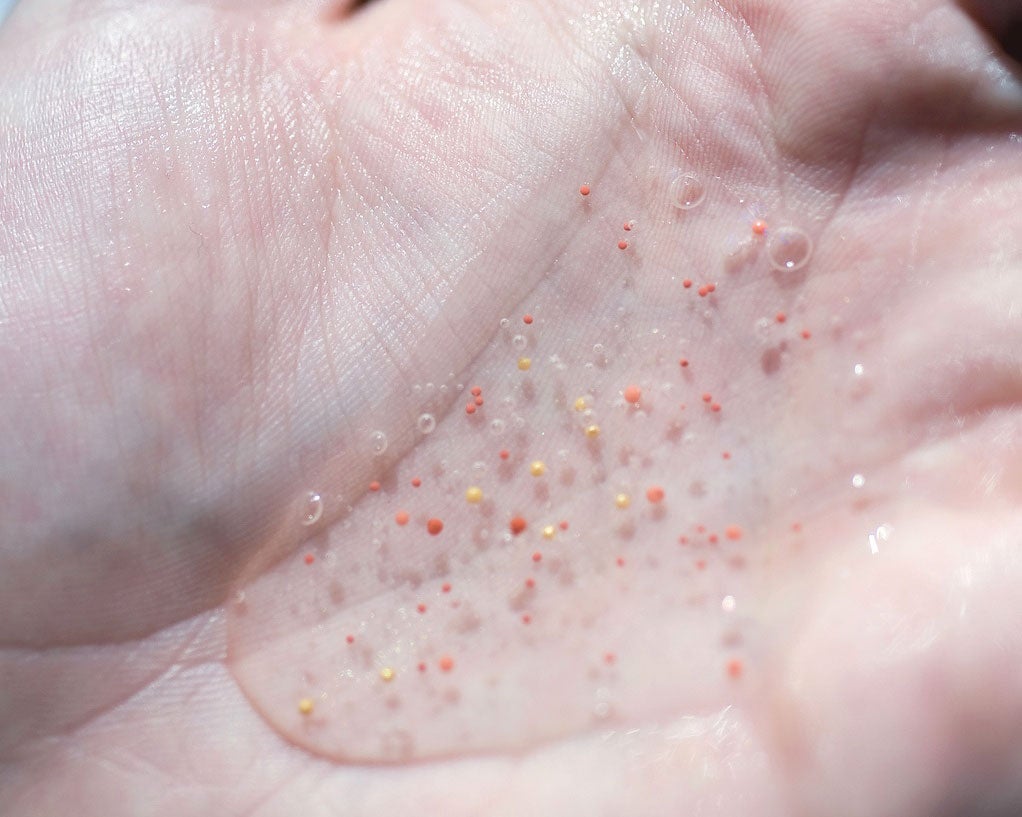Barack Obama signs ban on microbeads in cosmetic products to reduce ‘plastic pollution’
Microbeads pose a danger to fish and wildlife who mistake them for food

Your support helps us to tell the story
From reproductive rights to climate change to Big Tech, The Independent is on the ground when the story is developing. Whether it's investigating the financials of Elon Musk's pro-Trump PAC or producing our latest documentary, 'The A Word', which shines a light on the American women fighting for reproductive rights, we know how important it is to parse out the facts from the messaging.
At such a critical moment in US history, we need reporters on the ground. Your donation allows us to keep sending journalists to speak to both sides of the story.
The Independent is trusted by Americans across the entire political spectrum. And unlike many other quality news outlets, we choose not to lock Americans out of our reporting and analysis with paywalls. We believe quality journalism should be available to everyone, paid for by those who can afford it.
Your support makes all the difference.Barack Obama has offically banned the use of microbeads in personal cosmetic products that pollute lakes, rivers and oceans.
The law, called the‘Microbead-Free Waters Act of 2015’, was approved by the House of Representatives earlier this month.
Microbeads, which are tiny plastic beads, are regularly used in personal care products such as skin exfoliators and toothpastes.
The law will phase microbeads out of consumer products over the next few years.
From July 2017, the manufacture of the plastics will be banned, followed by product-specific manufacturing and sales bans in the following years.
The act defines microbeads as “any solid plastic particle” smaller than 5 millimetres in size, and closes a potential loophole that could have allowed manufacturers to switch to a different type of plastic.
Many US media outlets noted how quickly the Microbead-Free Waters Act sailed through Congress, with seemingly little opposition from the cosmetics industry.
According to Beat the Microbead, an international campaign raising awareness around the issue, a number of brands have already vowed to stop the use of the beads, including most major UK supermarkets, Boots and Superdrug.
Research in 2004 found the concentration of microplastics in the marine environment is accumulating rapidly, and one of the direct sources was the flushing of microbeads used in personal care products.
In 2009, researchers from the University of Auckland observed that microbeads pass directly into household waste water streams and are too small to be filtered by standard filters used at sewage treatment plants.
Marine species also feed on the beads of plastic, unable to distinguish between them and actual food. An overview by the Convention on Biological Diersity showed over 663 different species were negatively impacted by “marine debris”.
Join our commenting forum
Join thought-provoking conversations, follow other Independent readers and see their replies
Comments